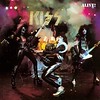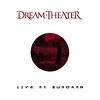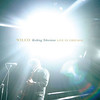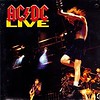The Death Of The Live Album
Though this topic strikes me as something to be less than worried about, it still seems worth pointing you to this article where reporter Andrew Dansby asks, “Is the live album dead?” Likely, there are far many more issues that demand attention than the question as to whether not live albums have lost their cultural significance, but I can’t help but to think about Thunderstruck by AC/DC. The live version is something else. Same goes for Hollow Years by Dream Theater.
From my perspective, I’m not sure what to think about the so-called “death of the live album.” Chances are, it’s going to happen. At least to the extent that it makes no longer makes sense for artists to release strictly live albums that don’t have some kind of multimedia experience tied in. Dansby’s take:
"The live album, once an obligatory component of a band's discography and in some cases, a defining work, doesn't seem as culturally prevalent as it did 35 years ago… live albums that sell millions of copies are likely extinct. The same could be said for most albums, but the live album was on the wane even before the bottom dropped out of the music recording business during the past decade…Part of the problem has been the industry's movement from a culture of physical albums to one of electronic singles."




I think we are seeing the Death of the Live ALBUM, but if anything, bands are recording live shows more.
I think they’re becoming more niche products that only appeal to hardcore fans, or they’re being given away for free as promotional tools (Daytrotter, for example, although not a live show per se, is still a live experience). Jonathan Tyler is another musician who is giving away downloads of his live shows to fans that sign up at his website.
We keep “content is king”, and a live show is an easy thing to push out to fans, and as long as that’s the case, I think bands will continue to record and disseminate live music.
German techno powerhouse Scooter have released FOUR live albums since 2002! They may not do the numbers Frampton Comes Alive had, but nothing is selling like that anyway. I think the live album as cultural relevance is doing just fine.
a few truly amazing live albums in the past 10 yrs that aren’t given out for free (ranging in style to prove my point):
a positive rage – the hold steady
adrian belew – side four
built to spill – live
christian mcbride – live at tonic
dj shadow – live! in tune and on time
john mayer trio – try!
my morning jacket – okonokos
tom waits – glitter and doom live
ween – live in chicago
for any true music fan it’s the live performance that is most memorable, the true standard for musical excellence, and the test of an artist’s longevity. i don’t think the live album is going anywhere anytime soon.
I usually agree with just about everything on this site, but this time I definitely disagree.
Live music, and the consequentialy recordings, may very well save the music industry at some point.
For music that people truly love and enjoy, these live recordings represent something special and unique, people will pay for them if produced well, and musicians can derive additional income from their live shows.
The musicians that prove to be sucessful financially in this day and age may very well be the ones that can create new and intereting live shows each time, i.e., jam bands and the like.
Matt
http://www.VolumeEleven.net – Music News for Music People
Recording of live shows are more active then ever for some bands. It’s just that bands are empowering fans to record the shows vs the band recording a show and selling it. In one way it lowers the bands revenue, but increasing the bands presence because fans can trade and share the recordings. (e.g. More fans at shows) Some bands will request a copy of a fan’s live show recorded with iphone or other digital audio/video and state that fans can not sell the recordings for any type of profit. I’d say if a band likes the recording they can use it and/or sell it but give credit to the individual who recorded it or allow fans to make a mix of multi-live shows. (Giving fans credit could increase a bands revenue stream indirectly) This would only apply to real bands making real music on stage and NOT the pop artists who use recordings during their live performances. Who wants a recording of a live show which is/has a recording already. (eg. Britney Spears, etc) Back when live albums were relevant you’d capture a moment. It’s just now there are also more mediums to hear and see a live performance (e.g. youtube) where as before youtube, mp3’s, etc the live recording was special.
I’ve never been keen on live albums.
The sound always seems to be inferior to studio albums and it always felt like the bands were just cashing in.
I will, however, have to check out the AC/DC one you mention. It’s gonna have to be damn good to beat the studio version though!
What data is used to reach the conclusion that the live album is dead and/or dying? Personal observations suggest the complete opposite. Consider the success of http://nugs.net/.
Obviously artists who are “taper friendly” have had their live shows recorded for years and several are now able to deliver high quality soundboard recordings en masse due to the virtually non-existent cost of distribution. Phish has done extraordinarily well with releasing their live shows – I’d imagine they have sold many times more of these than all of their studio albums.
since many of today’s touring acts can’t play, sing or do anything without backing tracks, the live record is somewhat of a misnomer.
For acts that can play the live experience is second to none and fans will be looking for it, unless the acts can no long afford to tour, and that is another thing entirely.
@ Paolo
Just out of interest, how do you tell the difference between a Scooter studio album and a Scooter live album?
I guess the live album has largely been replaced by the live DVD. I don’t mind that development.